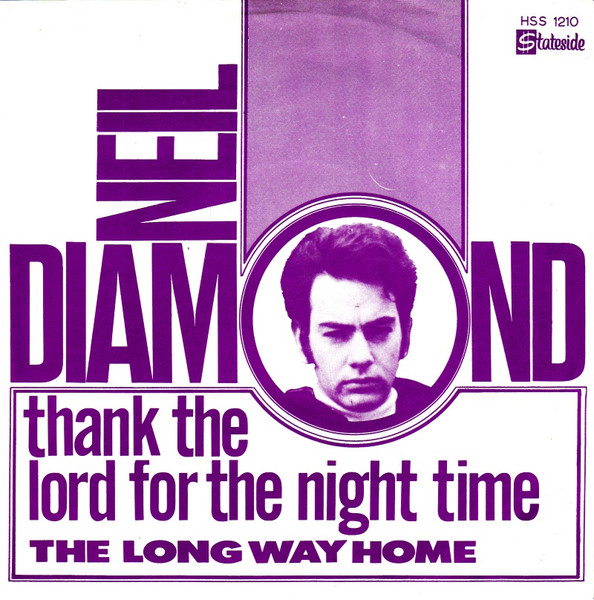
About the Song
Thank The Lord For The Night Time: A Song of Respite and Renewal
In the realm of popular music, few artists have captured the essence of heartfelt emotion and storytelling quite like Neil Diamond. With his distinctive vocals and knack for crafting relatable narratives, Diamond has penned countless anthems that have resonated with audiences for decades. Among his vast repertoire, “Thank the Lord for the Night Time” stands as a beacon of solace and rejuvenation, offering a sanctuary from the relentless demands of the day.
Released in 1967, “Thank the Lord for the Night Time” emerged as a poignant ballad that encapsulated the universal desire for respite and renewal. The song’s opening lines, “Daytime turns me off and I don’t mean maybe,” establish a sense of weariness and longing, painting a vivid picture of an individual seeking refuge from the pressures of the waking world.
Diamond’s masterful songwriting weaves together a tapestry of imagery, employing metaphors of darkness and light to symbolize the contrast between the burdens of the day and the restorative power of the night. The chorus, a repeated declaration of gratitude, serves as the song’s emotional anchor, emphasizing the profound relief found in the embrace of nightfall.
Beyond its lyrical depth, “Thank the Lord for the Night Time” is propelled by a captivating melody that perfectly complements the song’s thematic message. The gentle strumming of the guitar and the soft caress of the piano create a soothing atmosphere, while Diamond’s expressive vocals convey a sense of vulnerability and sincerity.
The song’s enduring appeal lies in its ability to transcend time and connect with listeners on a deeply personal level. Whether grappling with the stresses of daily life or simply seeking a moment of tranquility, “Thank the Lord for the Night Time” offers a comforting embrace, reminding us that even in the midst of darkness, there is always solace to be found.
As the song reaches its crescendo, Diamond’s voice soars, proclaiming, “Thank the Lord for the night time, thank the Lord for you.” These final words encapsulate the song’s essence – a profound expression of gratitude for the restorative power of darkness and the comforting presence of love.